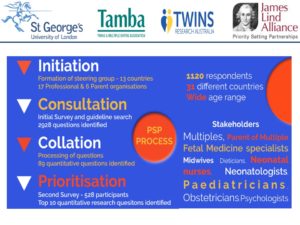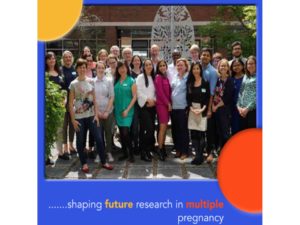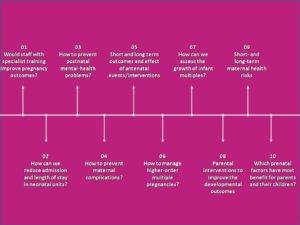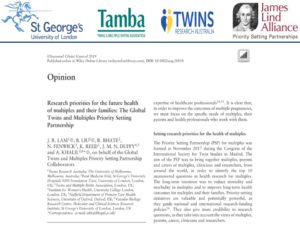Twin and Multiples Priority Setting Partnership
On this page:

Multiple pregnancies have been increasing in prevalence over the last 40 years, and are known to carry higher risks of stillbirth, premature birth, cerebral palsy, and risks to the mother. It can also put immense strain on the physical and mental health of the families, as well as pose an economical burden. Current research has however focused mostly on singleton pregnancies.
The Priority Setting Partnership for twins and multiples was therefore created to identify the most important research questions for multiples, with a long-term goal to reduce poor outcomes in multiple births, as well as improve the physical and psychological wellbeing of the families. The process consisted of an initial survey of research questions, collation of the questions and comparing these to existing research, identifying questions which have not been previously answered, prioritising these further in a secondary survey, and finally, identifying the top 10 most important questions in a workshop of parents and healthcare professionals.
This process was overseen by a steering group of experts and parent group leads, and we received an overwhelming response from 1120 people from 31 countries. Having identified the top 10 most important unanswered questions in multiple births, we believe this will provide credible direction for future research in improving the wellbeing of multiples and their families.






